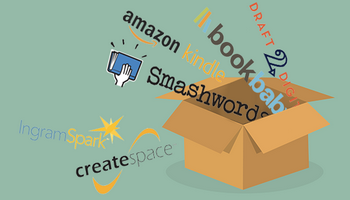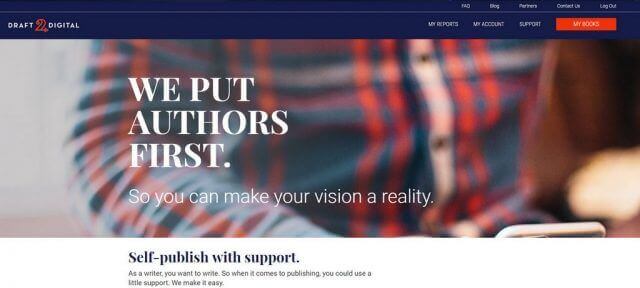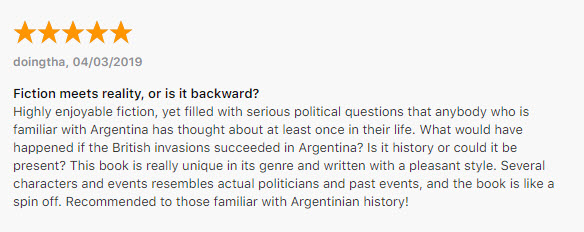In How To Self-Publish Your Book – Part Three, we concluded with my book being published on Amazon/KDP, but that isn’t the end of the story, because an eBook can be published in numerous outlets by the very nature of its low overhead. I discovered this by lurking around numerous book writing forums and I have to say that I’m also grateful to DCT reader and fellow author, Brenda Colbath for suggesting in the comments section of part one of this series, that I don’t enroll in KDP Select in the first place which would have limited my publication options.
Publish With A Digital Publishing Aggregator
From my research, I found Smashwords and Draft2Digital, both aggregators (distributors), but with different methods of publishing available to authors. From the start, I was a little biased towards Draft2Digital, having read an interesting review of both platforms at Just Publishing Advice: Draft2Digital vs Smashwords review One Clear Winner and the reviewer was correct when he pointed out that manuscript submission with Smashwords is a fairly lengthy and drawn-out process, whereas, with Draft2Digital, the entire process is automated.
Having already spent many weeks editing my manuscript for publication on Amazon/KDP, the last thing I wanted to do was burden myself with yet another formatting exercise with Smashwords. In fact, they have published a 127-page guide on ePub formatting and once I’d ploughed through it, I realised that the effort simply wouldn’t be worth it, for exactly the same results that would be achieved with Draft2Digital whose formatting is automatic. Furthermore, both companies distribute to practically the same outlets (digital storefronts) anyway.
As a matter of fact, a colleague wanted to buy my book as an eBook and had an Apple gift voucher that she wanted to use, which is another reason why I needed to increase my sales potential and reach. Amazon isn’t the only player in the independent publishing industry.
Without running through the entire publishing process with Draft2Digital (D2D), suffice to say that all the usual details need to be completed such as tax information, payment details and so on, finally ending with uploading the manuscript, book cover and synopsis, all of which are magically auto-formatted, in a similar manner to KDP. Over the next few days, D2D kept me informed every time my book was accepted at each store as per the above list.
 Book Promotion
Book Promotion
We’ve all seen the films, where an author stands in a small, cosy boutique bookshop, reads a few pages from his new book and then sits down to sign piles of gleaming new copies for his adoring fans, while his agent stands proudly in the afterglow, quietly fingering his calculator. That’s a lovely picture to paint, but in the real world, independent publishing without an agent or big publishing house behind you, all the footwork is down to the author. This is an ongoing process and one which I happen to enjoy, because the book won’t sell itself, unless it develops its own momentum through word of mouth and positive reviews. One also has to tread a fine line between subtlety and going way over the top, so initially, I’ve asked those who have bought my book (if I know them) to please write a review, if they’ve enjoyed the read.
If time permits, I may write one final part to this series, exploring how successful (or not) my campaigns of book promotion have been through social media and other outlets, but in the meantime, I hope readers have enjoyed this journey from writing the book to final publication. If I have to take one thing from this experience, it’s the realisation that doffing one’s cap and crawling to the established publishing industry, is thankfully on the wane now that independent publishing is mainstream. Hallelujah, I say.
Contents
- How To Self-Publish Your Book – Part One
- How To Self-Publish Your Book – Part Two
- How To Self-Publish Your Book – Part Three
- How To Self-Publish Your Book – Part Four <<- You are here
- How To Self-Publish Your Book – Part Five
—




